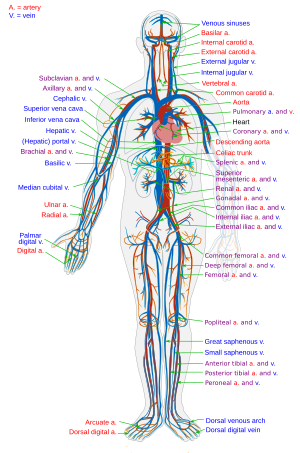 In a groundbreaking discovery that may eventually render bypass surgery history, researchers at Tel Aviv University have shown that an injected protein can regrow blood vessels in the human heart.
In a groundbreaking discovery that may eventually render bypass surgery history, researchers at Tel Aviv University have shown that an injected protein can regrow blood vessels in the human heart.In heart disease, blood vessels are either clogged or die off, starving the heart of oxygen and leaving it highly susceptible to a cardiac attack.
Dr. Britta Hardy of TAU's Sackler School of Medicine and her team of researchers have developed a protein-based injection that when delivered straight to muscles in the body, sparks the regrowth of tiny blood vessels.
The new vessels in the heart could give millions of people around the world a new lease on life.
"The biotechnology behind our human-based protein therapy is very complicated, but the goal is simple and the solution is straightforward. We intend to inject our drug locally to heal any oxygen-starved tissue. So far in animal models, we''ve seen no side effects and no inflammation following our injection of the drug into the legs. The growth of new blood vessels happens within a few weeks, showing improved blood circulation," said Hardy. The protein solution can also be added as a coating to a stent. Usually, the implantation of a stent is accompanied by a high risk for blood clots, which necessitates the use of blood thinners.
"We could coat a stent with our peptide, attracting endothelial stem cells to form a film on the surface of the stent. These endothelial cells on the stent would eliminate the need for taking the blood thinners that prevent blood clots from forming," said Hardy.
If investment goals are met, the researchers are hoping that toxicity studies and Phase I trials could be complete within two years.
The researchers began the study for preventing leg amputations, positing that proteins from the human body could be used to trigger the growth of new blood vessels.Hardy started by studying a library of peptides and testing them in the laboratory and later confirmed initial results.
She then took some of the isolated and synthesized peptides and tested them in diabetic mice whose legs were in the process of dying.Although diabetes is known to decrease blood circulation, Hardy found that her therapy reversed the decrease.
"Within a short time we saw the formation of capillaries and tiny blood vessels. After three weeks, they had grown and merged together with the rest of the circulatory system," she said.
In mice with limited blood circulation, she was able to completely restore blood vessels and save their legs. It was then a short step to studying the applicability of the research to cardiac patients.
"It''s pretty obvious if there is regrowth or not. Our technology promises to regrow blood vessels like a net, and a heart that grows more blood vessels becomes stronger. It's now imaginable that, in the distant future, peptide injections may be able to replace bypass surgeries," concluded Hardy.
The study has been published in Biochemical Pharmacology























